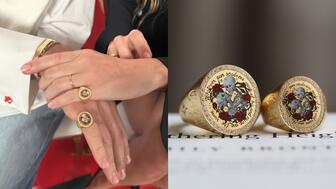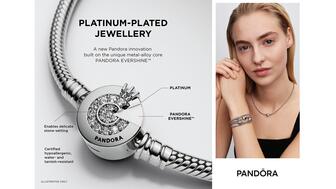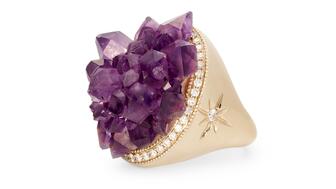Peter Smith: Is Your Comp Plan a Hiring Hindrance?
If you want to attract good salespeople and generate a stream of “sleeping money” for your jewelry store, then you are going to have to pay.

While the frustration is not new, what struck me was how, in these cases, the challenges were obvious, self-inflicted, and eminently fixable.
Some might prefer to believe otherwise, but sales is a competitive sport. It doesn’t have to be a “contact” sport, but it is competitive.
Failure to acknowledge that doesn’t make it any less so, but it often serves as a detriment to attracting (and retaining) talented salespeople.
Why some business owners choose to ignore the competitive nature of sales and choose to pay a base salary or hourly wage is not always clear, but one of the oft-cited excuses is they want to protect their culture.
“I don’t want my customers to be pressured into buying when they come in.”
OK, that’s an interesting one, but unless you are a not-for-profit entity, your business relies on customers making buying decisions.
Given the psychological research on how little we as humans know about our own motivations and drivers (it’s widely believed that our subconscious generates about 95 percent of our thoughts), we need talented salespeople to positively influence and inspire buying behavior.
I’ve also heard, “I don’t want an environment where people are climbing over each other to get to the customer.”
Again, interesting, but sort of like a global pandemic, that happens, but rarely.
If you have established a culture of respect and support for your team and customers, there is absolutely no reason you should have that kind of mayhem, regardless of the compensation plan you deploy.
If you do, that’s a management issue, not a comp issue.
We can all agree that there is absolutely no excuse for salespeople fighting with each other to get to the customer first. Again, not quite as rare as a pandemic, but not the sort of thing one often sees in retail environments, and easily stamped out if witnessed.
Refusing to have a compensation plan that is not commission and/or bonus based is like cutting your head off to avoid a toothache. It definitely fixes one problem, but at what cost?
“Instead of advertising an hourly wage, advertise that successful candidates will have an opportunity to earn six figures.”— Peter Smith
That means they know what the scorecard looks like, they know exactly what they need to accomplish to be successful, and they have confidence that no one is putting a finger on the scale to curtail their success or pandering to their less motivated colleagues by having a comp plan that has mediocrity, not meritocracy, as its high watermark.
Instead of advertising an hourly wage, advertise that successful candidates will have an opportunity to earn six figures. Doing so is not a guarantee that they will make six figures, but it tells them that there will be a clear path to getting there if their performance merits.
Make sure the commission or bonuses align with the company’s best interests.
Pay for profitable dollars, not gross sales. That is important in all business, but critical in stores where discounting is permitted, or where an important brand is delivering short margins.
There’s an old chestnut in sales that says the best kind of business is when you have “sleeping money,” meaning subscription services, insurance, annuities, or any other streams of revenue that deliver repeat sales without you having to be present.
In retail, the best kind of “sleeping money” is top sales talent. When you and/or others are consumed with other aspects of the business, they’re making things happen. It’s how they are wired.
Hire that and compensate accordingly.
Happy retailing!
The Latest

Parent company Saks Global is also closing nearly all Saks Off 5th locations, a Neiman Marcus store, and 14 personal styling suites.

It is believed the 24-karat heart-shaped enameled pendant was made for an event marking the betrothal of Princess Mary in 1518.

The AGTA Spectrum and Cutting Edge “Buyer’s Choice” award winners were announced at the Spectrum Awards Gala last week.

Launched in 2023, the program will help the passing of knowledge between generations and alleviate the shortage of bench jewelers.

The “Kering Generation Award x Jewelry” returns for its second year with “Second Chance, First Choice” as its theme.


Sourced by For Future Reference Vintage, the yellow gold ring has a round center stone surrounded by step-cut sapphires.

The clothing and accessories chain announced last month it would be closing all of its stores.

Criminals are using cell jammers to disable alarms, but new technology like JamAlert™ can stop them.

The “Zales x Sweethearts” collection features three mystery heart charms engraved with classic sayings seen on the Valentine’s Day candies.

The event will include panel discussions, hands-on demonstrations of new digital manufacturing tools, and a jewelry design contest.

Registration is now open for The Jewelry Symposium, set to take place in Detroit from May 16-19.

Namibia has formally signed the Luanda Accord, while two key industry organizations pledged to join the Natural Diamond Council.

Lady Gaga, Cardi B, and Karol G also went with diamond jewelry for Bad Bunny’s Super Bowl halftime show honoring Puerto Rico.

Jewelry is expected to be the No. 1 gift this year in terms of dollars spent.

As star brand Gucci continues to struggle, the luxury titan plans to announce a new roadmap to return to growth.

The new category asks entrants for “exceptional” interpretations of the supplier’s 2026 color of the year, which is “Signature Red.”

The White House issued an official statement on the deal, which will eliminate tariffs on loose natural diamonds and gemstones from India.

Entries for the jewelry design competition will be accepted through March 20.

The Ohio jeweler’s new layout features a curated collection of brand boutiques to promote storytelling and host in-store events.

From heart motifs to pink pearls, Valentine’s Day is filled with jewelry imbued with love.

Prosecutors say the man attended arts and craft fairs claiming he was a third-generation jeweler who was a member of the Pueblo tribe.

New CEO Berta de Pablos-Barbier shared her priorities for the Danish jewelry company this year as part of its fourth-quarter results.

Our Piece of the Week picks are these bespoke rings the “Wuthering Heights” stars have been spotted wearing during the film’s press tour.

The introduction of platinum plating will reduce its reliance on silver amid volatile price swings, said Pandora.

It would be the third impairment charge in three years on De Beers Group, which continues to grapple with a “challenging” diamond market.


The Omaha jewelry store’s multi-million-dollar renovation is scheduled to begin in mid-May and take about six months.

The “Paradise Amethyst” collection focuses on amethyst, pink tourmaline, garnet, and 18-karat yellow gold beads.
































